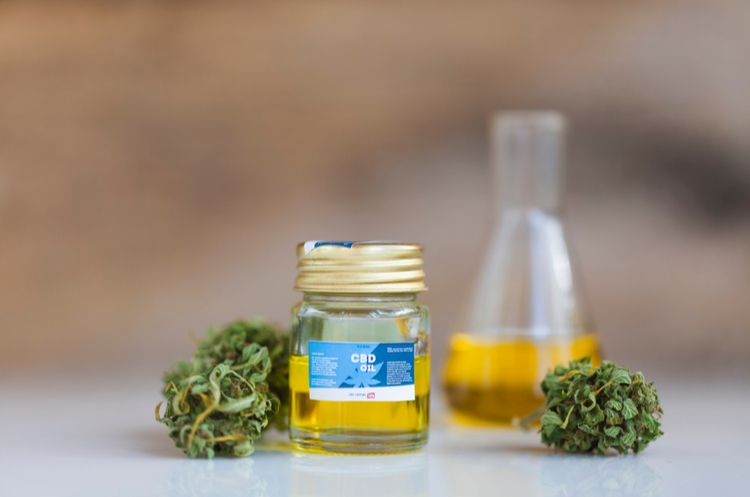DEA Reschedules CBD-Containing Epidiolex as a Schedule V Drug

Cannabis plants contain hundreds of compounds, the most well-known of which include cannabidiol (CBD) and Δ9-tetrahydrocannabinol (THC). CBD is believed to have anti-convulsant and anti-inflammatory properties, while THC is the psychoactive and intoxicating component of cannabis. As it currently stands, both cannabis plants and their compounds are regulated for medicinal use or are illegal in most places, being relegated to Schedule I (the most restricted) status in the United States. Dronabinol (MarinolTM), a synthetic form of THC that is FDA-approved as an appetite stimulant and anti-emetic, has been a long-time exception to this, having been rescheduled by the Drug Enforcement Administration (DEA) as a Schedule III drug in the United States in 1999.
In June, GW Pharma received U.S. FDA approval for EpidiolexTM, a CBD oil for the treatment of two severe, but rare forms of epilepsy. However, because CBD remained a Schedule I drug in the United States, it could not legally be prescribed to patients. The DEA recently rescheduled EpidiolexTM to the least restricted category, Schedule V, making it legal to prescribe EpidiolexTM to patients. As is explained in a recent Nature article, many researchers hope that the DEA will soon reschedule CBD completely, rather than just the specific EpidiolexTM formulation.
Indeed, the Schedule I status of CBD (and all of the other non-psychoactive cannabinoids) has greatly constrained the ability of researchers to study cannabis compounds and improve our collective knowledge around their potential medicinal properties. As pure CBD is becoming more readily available, either purified from plants or produced in a lab, researchers are hoping that restrictions on this and other non-intoxicating compounds will be lifted in the United States.
Canada, however, is poised to become a world leader in cannabis research, as federal descheduling and legalization of recreational cannabis is coming into force on October 17, 2018. There has already been an influx of industry- and government-supported research grants available in Canada. Research programs have been initiated across the country, focused on everything from the use of cannabis to curb opiate abuse to the effects of cannabis on youth brain development to developing novel cannabis strains that produce specific cannabinoid profiles. Further, with the announced regulatory changes to Canada’s industrial hemp regime that will allow CBD-rich hemp flowers to be used for CBD-production, we expect a further influx of capital and industry activity into the CBD portion of the cannabis industry.
